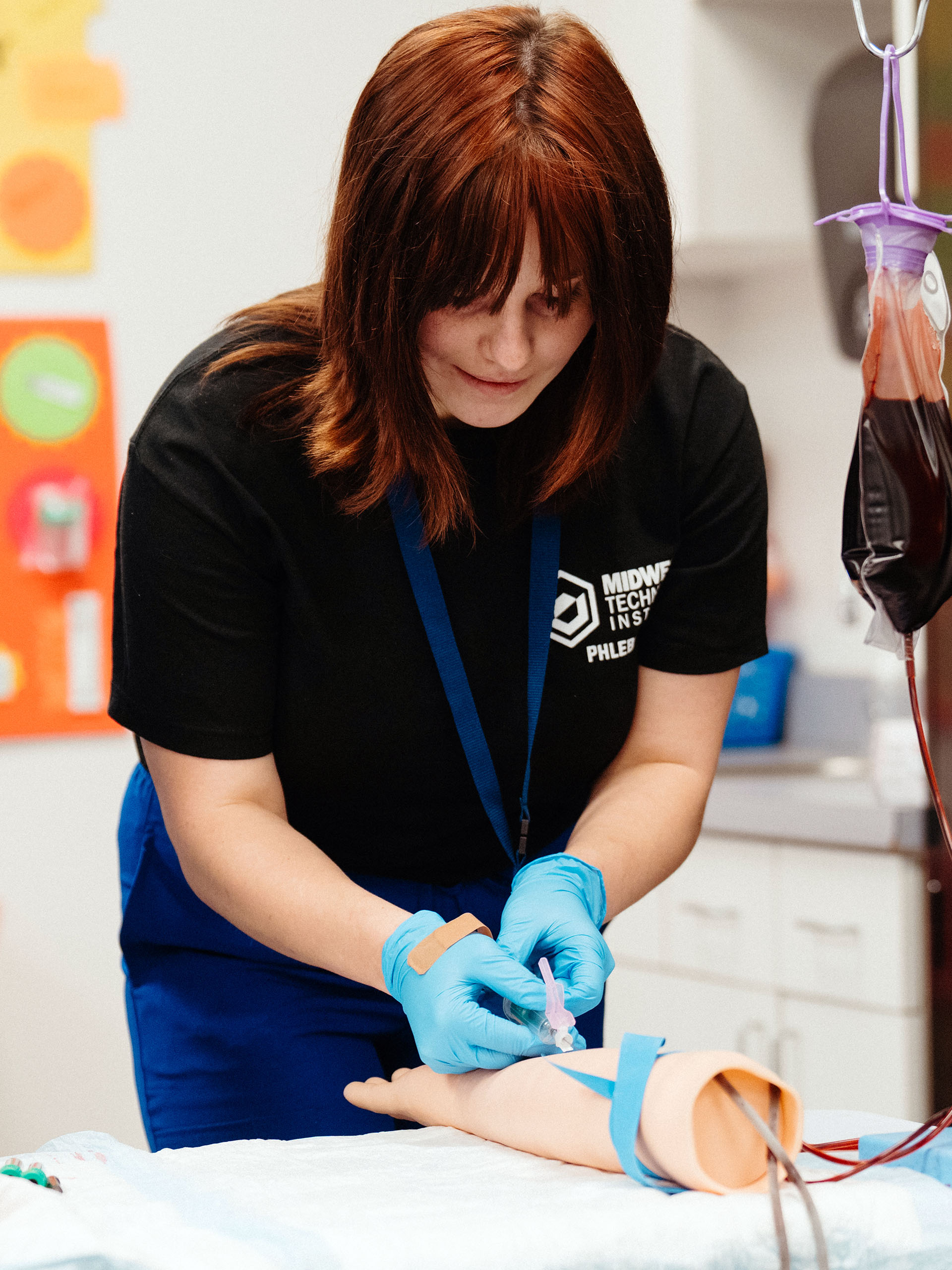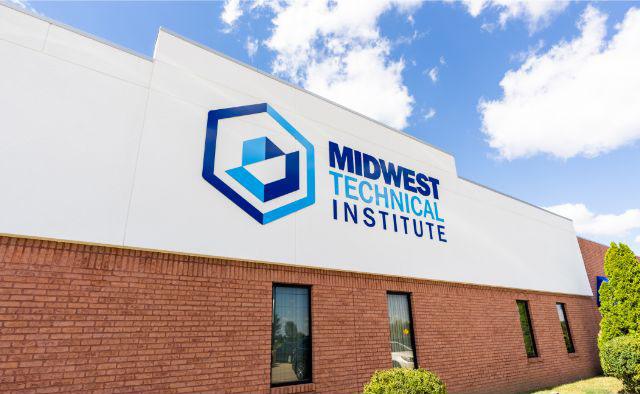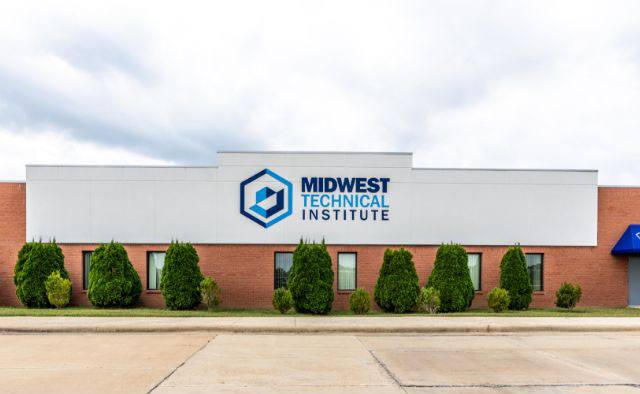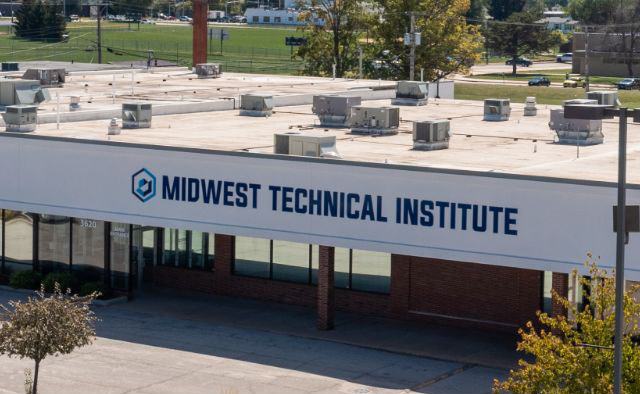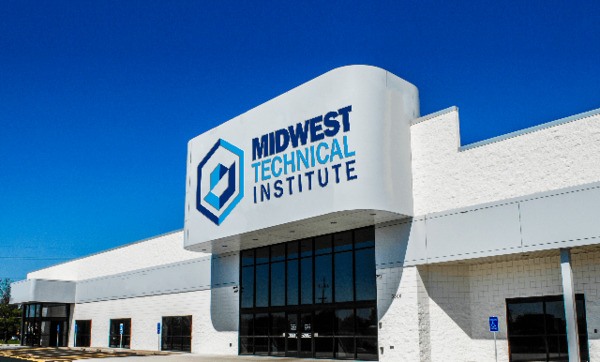Ready to learn more?
MTI is Here to Help
MTI’s Admissions Team will reach out to answer any questions you have and share next steps!
What Makes the Phlebotomy Course at MTI Different?
Hands-On Focused
Labs that simulate real Phlebotomy working environments
Accelerated Training
Complete your Phlebotomy training in just 5 weeks
Experienced Instructors
All MTI Phlebotomy instructors have real-world experience
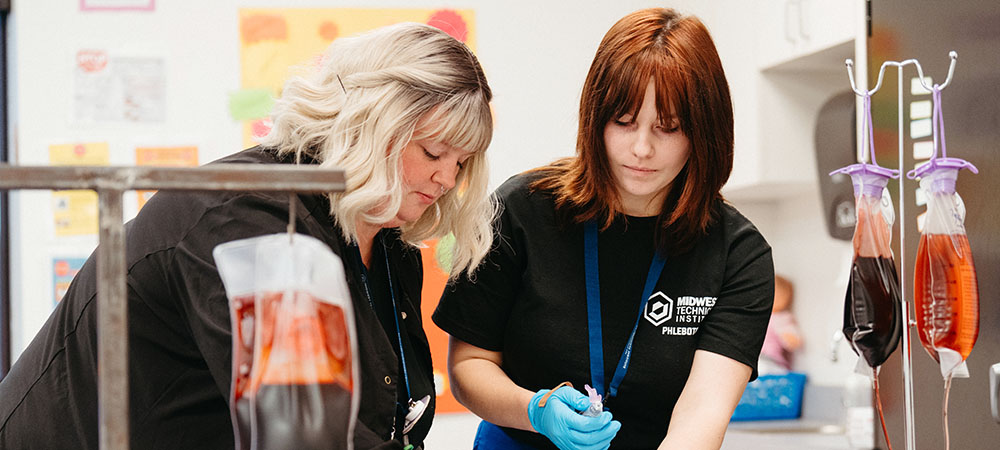
Daytime Classes Available
Flexible class times that work for your busy schedule
Employment Preparation
No general education courses required, students will learn the skills required for entry-level employment
Career Placement
Career counseling & placement assistance is available to all qualified graduates

HANDS-ON PHLEBOTOMY TRAINING COURSE
Quality Assessment | Infection Control | Venipuncture Procedures | Specimen Handling | Point-of-Care Collections | Pediatric & Geriatric Procedures | Blood Cultures
The phlebotomy instructors at MTI bring real-world laboratory experience to the classroom, providing hands-on medical instruction and one-on-one interaction to help you develop essential phlebotomy skills.
MTI’s Phlebotomy Course prepares you to take the NCCT (National Center for Competency Testing) certification exam necessary to become a Certified Phlebotomy Technician (CPT). Students will also be certified in CPR, AED, and first aid.
- Professional ethics, legal, and regulatory issues of the trade
- Anatomy and physiology of different organ systems
- Common medical terminology essential to your work environment
- Urinalysis, body fluids, and other specimens
- Arterial, intravenous (IV), and special collection techniques
- Safety and first aid
Ready to Learn More?
Ready to learn more about MTI’s hands-on training programs? Give us a call or fill out the form to get more information.
Financial Assistance

Financial assistance is not available for the Phlebotomy Course.
Scholarship Opportunities

MTI is here to help you attain the funding you need to take the next step in your education. MTI’s Financial Aid Team can help match you with scholarship opportunities you may qualify for.
Phlebotomy Class Information
Are you interested in becoming a phlebotomist? Here’s what you can expect when you attend Midwest Technical Institute (MTI) for your phlebotomist training:
QUICK FACTS: PHLEBOTOMY COURSE
According to the U.S. Bureau of Labor Statistics, phlebotomists provide various medical laboratory services including drawing blood for tests, transfusions, research, or blood donations. For additional information, check out: All About Phlebotomy: Requirements to Become a Phlebotomist
How much do phlebotomists make?
According to the U.S. Bureau of Labor Statistics, the median annual wage for phlebotomists in May 2023 was approximately $41,810.
Where can I work as a phlebotomist?
Phlebotomy students are trained to perform in entry-level positions normally available in hospitals, medical and diagnostic laboratories, physician offices, and outpatient care centers. The U.S. Bureau of Labor Statistics notes that the majority of phlebotomists work in medical and diagnostic laboratories.
How much does the Phlebotomy Course cost?
The total cost of Midwest Technical Institute’s Phlebotomy Course, including books and supplies, is $2,100. For more information on program costs, please contact your local MTI campus.
Enrollment & Outcomes
Enrollment and outcome information for all Illinois-based campuses and the ACCSC annual reports for each program in Adobe PDF format. Please note, all programs are not offered at all campuses. For annual details, please visit our phlebotomy enrollment and outcomes page.
Accreditations
- Midwest Technical Institute (MTI) is accredited by the Accrediting Commission of Career Schools & Colleges (ACCSC).
- MTI is approved by the U.S. Department of Education to participate in federally-funded financial aid programs.

For more information about our accreditations and approvals, please visit: https://www.midwesttech.edu/about-us/accreditation/
Midwest Technical Institute is approved by the Division of Private Business and Vocational Schools of the Illinois Board of Higher Education: 1 N. Old State Capitol Plaza, Suite 333, Springfield, IL 62701. For more info: www.ibhe.org
Midwest Technical Institute is approved to operate by the Missouri Department of Higher Education.
